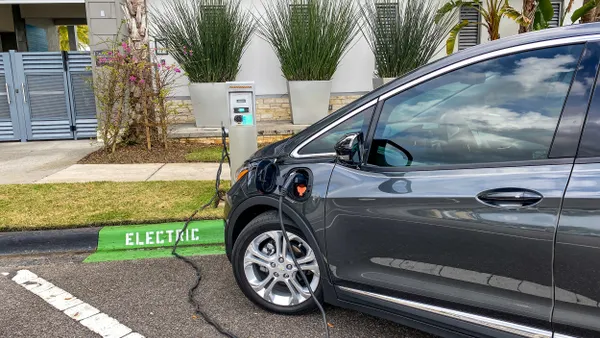Dive Brief:
- A lawsuit by 21 states led the federal government to postpone a Feb. 1 deadline for submitting plans on reducing greenhouse gas emissions under a new Federal Highway Administration rule.
- The parties agreed that FHWA would delay the deadline for states to comply with the upcoming regulation until March 17, per a court filing Friday.
- The lawsuit by GOP attorneys general argues Congress never gave authority to the FHWA or the federal Transportation Department to regulate greenhouse gas emissions.
Dive Insight:
The FHWA rule, finalized in November, seeks to require states and metropolitan planning organizations deliver plans to create and regularly track carbon dioxide reduction targets.
States said that megaprojects that increase throughput will prompt more CO₂ emissions, such as an overhaul to replace a bridge near Evansville, Indiana, into Kentucky with a new highway span involving Interstate 69.
Policy under President Joe Biden’s administration seeks to reduce greenhouse gas emissions 50–52 percent below 2005 levels as of 2030 and reach net-zero emissions no later than 2050, the agency rule noted.
Despite the Biden administration policy, Texas’ complaint pointed out the DOT had already removed language requiring states’ targets to be as stringent as the president’s.
But the final rule “still requires TxDOT to establish declining targets and monitor and report progress to the targets,” the Lone Star State said in its complaint.
The rule will cost about $1.5 million annually to implement, per the highway agency. FHWA has defended the costs, saying the benefits of significantly reduced emissions justify those expenses.
Legal arguments continue to unfold in the case, with a response to a preliminary injunction motion due Feb. 14.













